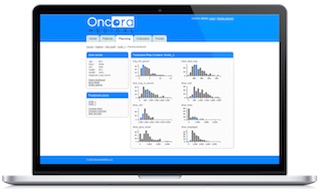 Philadelphia-based digital health accelerator DreamIt Health has announced its third class. As in previous years, the accelerator is sponsored by Penn Medicine and Independence Blue Cross.
Philadelphia-based digital health accelerator DreamIt Health has announced its third class. As in previous years, the accelerator is sponsored by Penn Medicine and Independence Blue Cross.
DreamIt Health takes an 8 percent equity stock in accelerator companies. In exchange, companies get $50,000 in seed funding with a possible $250,000 in follow-on funding, as well as other benefits: free workspace in the University Science Center's Innovation Center, mentorship, legal advice and counsel, and access to healthcare personnel at Penn Medicine and Independence. Companies will participate in a 16-week course that ends in October.
"One of the most valuable things an entrepreneur can do early on is talk to a lot of customers," Steve Barsh, EVP of Accelerators and Managing Director for DreamIt Health, said in a statement. "DreamIt Health companies are encouraged and coached on how to quickly identify and test critical assumptions with potential customers from day one. Having Independence and Penn Medicine as strategic partners opens up doors and unique opportunities for our entrepreneurs and enables them to quickly test those assumptions that can make or break a company."
In addition to eight official accelerator participants, DreamIt will incubate two ideas that have sprung from employees at the Children's Hospital of Philadelphia, with whom DreamIt has a partnership. One group is exploring simulated driving assessments to improve the driving skills of hospital employees, while the other will integrate DNA and RNA tumor profiling to improve molecular cancer analytics. Read on for the eight accelerator participants:
Philadelphia-based CareCierge is a stealth-mode company offering concierge services for caregivers of an aging or sick loved one.
dBaza Health, based in Pittsburgh, is working on a "clinically validated patient onboarding platform for managing chronic diseases like diabetes." The company aims to reduce costs to payers for chronic disease management and improve the lives of patients.
Another Philadelphia company, GraphWear Technologies is innovating new kinds of sensors that can detect blood sugar, dehydration, and fat burning via sweat and breath. The low-cost sensors will be graphene-enhanced and flexible.
Gray Matter Technologies in Austin, Texas is working on G-Force, a patent-pending impact-sensing sports mouthguard that helps parents, coaches, and athletes identify concussion risks.
Neutun Labs out of Toronto wants to help people with epilepsy track their symptoms using sensors in smartwatches and other wearables.
A provider-focused company, Philadelphia-based Oncora Medical is developing analytics software for radiation oncologists, to help them compare current patients against past cases.
Based in Boulder, Colorado, Pallas Medical is working on a mobile, user-friendly device for chemotherapy patients to help cool the scalp and prevent hair loss.
New York City-based VisExcell is seeking to apply big data and machine learning to improve computer-aided detection in mammograms and other kinds of medical imaging.

















